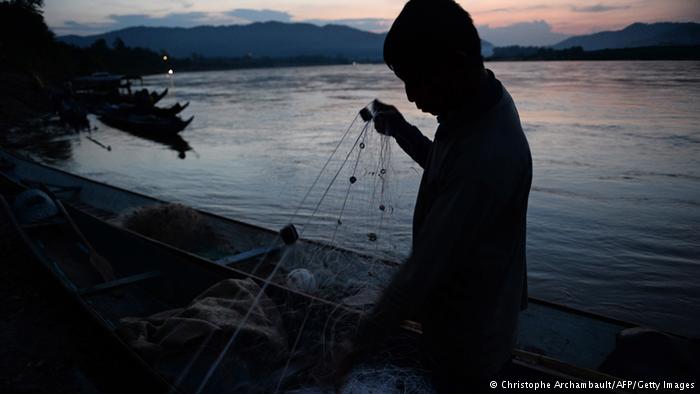Economy
Slavery in Thailand’s fishing industry
Forced labour and violence in Thailand’s fishing industry. This accusation has been levied years ago. After strikes and threats by the EU of a tuna factory to pay compensation now.

In the face of imminent international sanctions more than a thousand workers of a tuna fish factory have been compensated in Thailand. The companies have started around 48 million Baht (1.2 million euros) to pay off, said a spokesman for the province of Samut Sakhon on Tuesday. The province West of Bangkok, is a center of the Thai fishing industry.
The editorial recommends
Study: millions of people in slavery
Worldwide, approximately 36 million people live, according to a study, as modern-day slaves. Most of the cases were counted, therefore, in India, with around 14 million people live under extreme exploitation. (17.11.2014)
Deadly human trafficking in Thailand
In the jungle of Thailand, more and more graves are discovered. The dead are probably going on Rohingya trafficked by human traffickers, against Thailand is not determined, so the activist Matthew Smith. (06.05.2015)
Double standards in the fight against human trafficking
According to the U.S. Malaysia is at the very bottom of the list for modern slavery. Thailand, however, remains in the lowest level, although both countries are affected by the refugee influx of the Rohingyas. (28.07.2015)
The dark at the beginning of the delivery of global chains
Slavery, human rights violations, environmental sins – it looks bad at the beginning of the global supply chains. They have become increasingly complex. You are out of any control? (24.07.2014)
Hundreds of workers from the neighboring country of Myanmar had asked for a months compensation for exploitative employment. After a strike of a thousand workers in the last week, the company Golden Prize Tuna Canning agreed in the negotiations under the mediation of the Thai military government.
For the first time such a high compensation paid
The company, which is engaged in Samut Sakhon, nearly 2000 workers, and canned fish in the whole world, did not want to comment on the payments. The British labour rights activist Andy Hall, who had worked for the workers, said the threat of international sanctions have worked. Such a high compensation had never been paid.
Already a month ago, the Thai police had taken more than a hundred people. They were suspected of, against labour law and human trafficking operated, police said. Accordingly, the officials freed in addition, 130 people were forced to work under inhuman conditions on ships and in factories.
Allegation: human trafficking and slavery
Thailand is the third largest producer of marine products in the world. The industry came, however, for allegations of human trafficking and slavery in disrepute. Human rights organizations accuse some officials to collect bribes, rather than against the violations. Several workers have reported horrible working conditions, violence and killings on Board the ships.
The International labour organization (ILO) had practiced two years ago, the massive criticism of the Thai fishing industry. They also denounced the forced labor and violence. The fish industry, including the lucrative fish and shrimp farms and the packaging sector, account for 1.2 per cent of the Thai economy.
The European Union had threatened to Thailand last April with sanctions, should not approach the country against illegal fishing and forced labour in the industry. The Brussels initiated proceedings can lead to products such as tuna fish or shrimp from Thailand may no longer be in the EU is delivered. For Thailand, this could mean a loss of a billion dollars (923 million euros) in the year.
iw/wen (afp)


